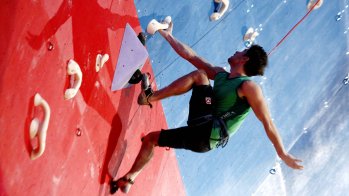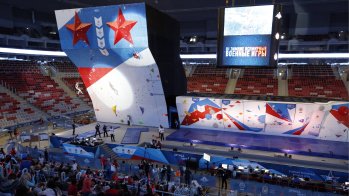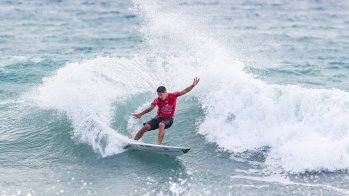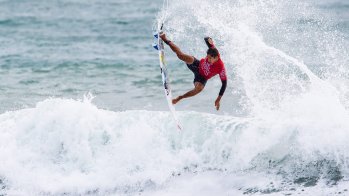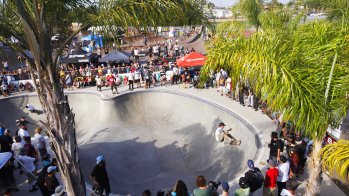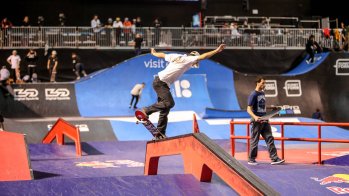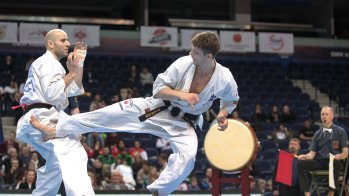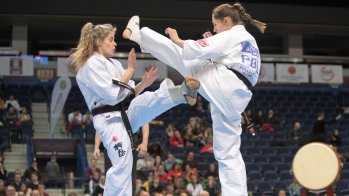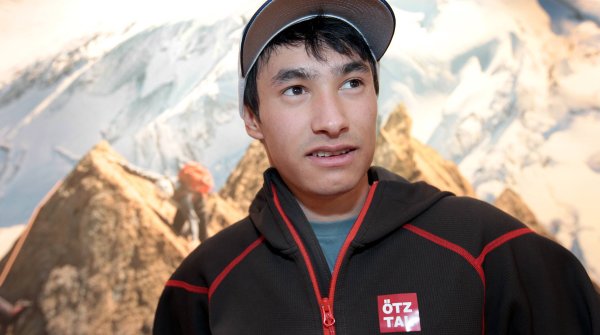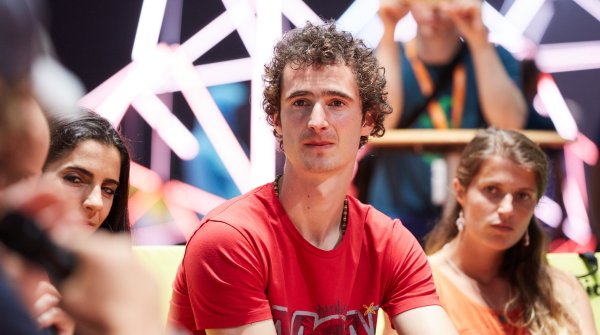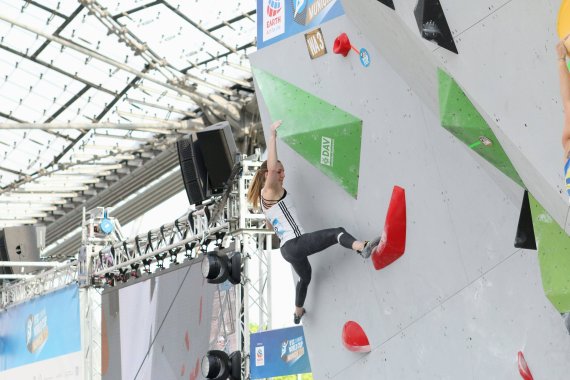
Burgi Beste is Vice-President of the German Alpine Club DAV, delegate of the IFSC and national and international referee for climbing competitions. ISPO.com has asked the friendly former headmistress for an interview.
A conversation about chances through Olympia and why it was good that the demonstration competition of climbing at the Olympic Winter Games 1992 was a failure.
ISPO.com: Climbing will be Olympic discipline in 2020 after it was already a demonstration competition 1992 in Albertville. What has happened in climbing over the past 30 years? Is climbing ready for the Olympics?
Burgi Beste: Yes, climbing is now ready for the Olympics. The demonstration competition in Albertville shows very nicely the development in climbing. Let's turn back time for a moment: As early as 1992, the IOC was considering the inclusion of climbing as an Olympic discipline. When the Winter Games in Albertville lacked an indoor sport for the public, climbing was taken up as a demonstration competition. Said, done, everyone was happy and thought that this would make it easy to integrate sport into the Olympics.
But?
Well, the competition in Albertville was quite a disaster: the venue was an ice rink, the athletes entered in icy temperatures, thin leggings and shirts - which was bizarre at one time. Then there is the fact that the routes were set quite differently at that time. It was a lead competition, the routes contained many resting points for the competitors. Accordingly, the final stretched gigantically and exceeded all time frames. The IOC quickly explained that it was not enthusiastic and that climbing was not accepted as an Olympic discipline.
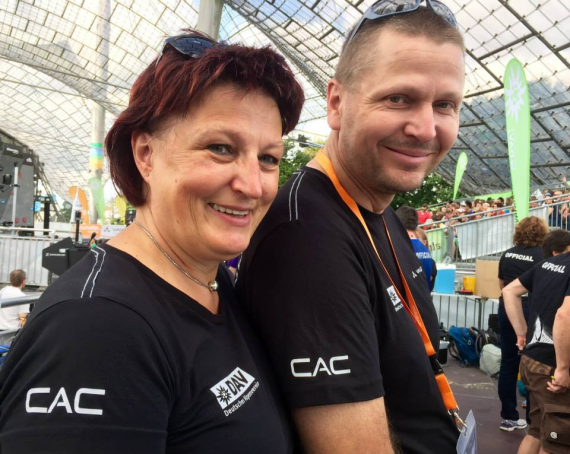
Was this rejection a chance?
Absolutely. A lot has happened since Albertville. Climbing has become a popular sport. According to estimates, we assume that 500,000 to 600,000 people climb in Germany. The bouldering sector alone has made a gigantic leap forward in recent years. Many boulder beginners use this sport similar to a gym visit. They go to the boulder hall in the evening for 1.5 hours and get out of power. Due to the many climbing and bouldering facilities in the cities, the sport has become known in society, unlike in 1992 when it appeared in Albertville. Many people now have an idea of climbing and climbing competitions.
Olympics 2021: The 5 Newly Participating Sports in Pictures
How do you think climbing has become so big in the last 30 years?
This has a lot to do with the changed association structures. The spin-off of the IFSC from the UIAA in 2007 certainly plays a central role. The IFSC has very quickly set itself the goal of once again making an advance towards the Olympics. These efforts and the associated changes then broke down into the national associations. A lot has changed here, which benefits the sport.
Also the competitions have become much more professional and the style of screwing and climbing has changed a lot. Today, climbing is much more dynamic, which makes the sport much more spectator-friendly especially for competition visitors who do not practice the sport themselves. A lot has also happened in the media. The competitions are now much better prepared. All these changes, which were initiated after Albertville, mean that climbing is now ready for the Olympics.
Where do you see the greatest chances for Climbing Thanks to the Olympics?
First and foremost, that sport will become even better known and penetrate an even broader society. This also applies to the media, where the climbing sport outgrows the niche of Internet streaming and is broadcast on public television. A point that will ultimately also benefit the halls and the manufacturers, because more people will want to try out the sport or start climbing.
You are Vice-President of the DAV, what measures is the DAV taking with regard to the Olympic Games 2020?
We already started our big "Climb to Tokyo" campaign in 2018 and are also preparing the topic of climbing in a broad way with stories and background knowledge, presentations by the athletes and much more. Of course, we also regularly provide the press with information about climbing. The social media channels are also served, which is already having an effect. Looking for example at the German Championship this year in Hilden: The young audience was enthusiastic and attached great importance to getting an autograph from the athletes. This was much more intensive than last year.
So you can see that Olympia is already bearing fruit?
Olympia is not a fast-sell, even if the competition in Tokyo is going well, which I personally very much hope will happen, the industry has to pull together across all areas afterwards. This is the only way to ensure that the positive mood has a lasting effect on the sport.
Are you going to arbitrate in Tokyo?
No, unfortunately I am not allowed to go to Tokyo because of my function as Vice President of the DAV, where I am also the national delegate for the IFSC but I will travel to Tokyo as Vice President of the DAV.
Climbing is of course also one of the important topics at OutDoor by ISPO. Get all the information here.
- Awards
- Mountain sports
- Bike
- Fitness
- Health
- ISPO Munich
- Running
- Brands
- Sustainability
- Olympia
- OutDoor
- Promotion
- Sports Business
- Textrends
- Triathlon
- Water sports
- Winter sports
- eSports
- SportsTech
- OutDoor by ISPO
- Heroes
- Transformation
- Sport Fashion
- Urban Culture
- Challenges of a CEO
- Trade fairs
- Sports
- Find the Balance
- Product reviews
- Newsletter Exclusive Area
- Magazine

